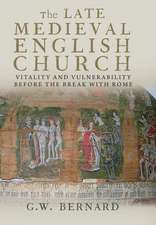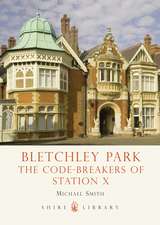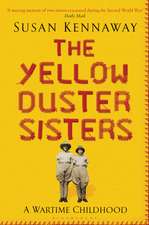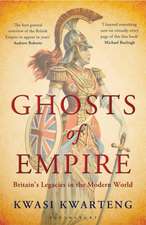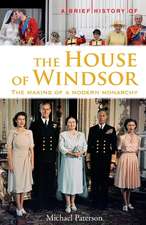Labour and the Free Churches, 1918-1939: Radicalism, Righteousness and Religion
Autor Peter Catterallen Limba Engleză Hardback – 5 oct 2016
| Toate formatele și edițiile | Preț | Express |
|---|---|---|
| Paperback (1) | 239.97 lei 6-8 săpt. | |
| Bloomsbury Publishing – 18 apr 2018 | 239.97 lei 6-8 săpt. | |
| Hardback (1) | 777.06 lei 6-8 săpt. | |
| Bloomsbury Publishing – 5 oct 2016 | 777.06 lei 6-8 săpt. |
Preț: 777.06 lei
Preț vechi: 1114.85 lei
-30% Nou
Puncte Express: 1166
Preț estimativ în valută:
148.71€ • 161.48$ • 124.91£
148.71€ • 161.48$ • 124.91£
Carte tipărită la comandă
Livrare economică 22 aprilie-06 mai
Preluare comenzi: 021 569.72.76
Specificații
ISBN-13: 9781441115898
ISBN-10: 1441115897
Pagini: 336
Dimensiuni: 156 x 234 x 28 mm
Greutate: 0.7 kg
Editura: Bloomsbury Publishing
Colecția Bloomsbury Academic
Locul publicării:London, United Kingdom
ISBN-10: 1441115897
Pagini: 336
Dimensiuni: 156 x 234 x 28 mm
Greutate: 0.7 kg
Editura: Bloomsbury Publishing
Colecția Bloomsbury Academic
Locul publicării:London, United Kingdom
Caracteristici
A significant contribution to the history of the Labour Party, Free Churches and inter-war Britain
Notă biografică
Peter Catterall is Reader in History at the University of Westminster, UK. In addition, he teaches on democracy and public policy for the Hansard Society. He is also chair of the George Lansbury Memorial Trust. He has published widely on 20th-century British history and his most recent work is Labour and the Politics of Alcohol: The Decline of a Cause (2014).
Cuprins
1. Introduction2. Theological and Political Changes amongst the Free Church Leadership3. The Nonconformist Conscience4. Changes in Chapel Society5. The Politics of Pewmanship6. Free Churchmen and Women in the Labour Party7. The Nonconformist Conscience and the Labour Party8. The Free Churches and Class Consciousness9. The Kingdom, the State and Socialism10. ConclusionsAppendices on Nonconformist Candidatures in General Elections 1918-35BibliographyIndex
Recenzii
This is a really important book. The relationship between the Labour party and the free churches is widely recognised, but very little understood. Peter Catterall has done a first-class job in combining an acute understanding of the Labour movement, and a deep knowledge of the nonconformist churches, to produce the first serious history of the relationship between the two. Based firmly on meticulous research in the relevant political and religious archives, Catterall constructs an analysis that comfortably outstrips anything that has gone before. This is a book that was urgently needed, and it will be the primary point of reference in its field for some time to come.
The Labour party was founded in a church hall and it used to be said that the labour movement owed more to Methodism than to Marxism. But now that we live in a post-industrial society and the 'Nonconformist Conscience' has all but gone, Labour finds itself with a serious identity crisis. Peter Catterall's brilliant new history takes us back to explain the Christian power-within that shaped the party that built the world's first social democracy.
The Labour party was founded in a church hall and it used to be said that the labour movement owed more to Methodism than to Marxism. But now that we live in a post-industrial society and the 'Nonconformist Conscience' has all but gone, Labour finds itself with a serious identity crisis. Peter Catterall's brilliant new history takes us back to explain the Christian power-within that shaped the party that built the world's first social democracy.



